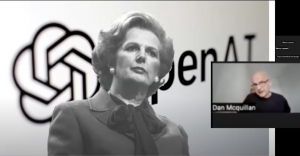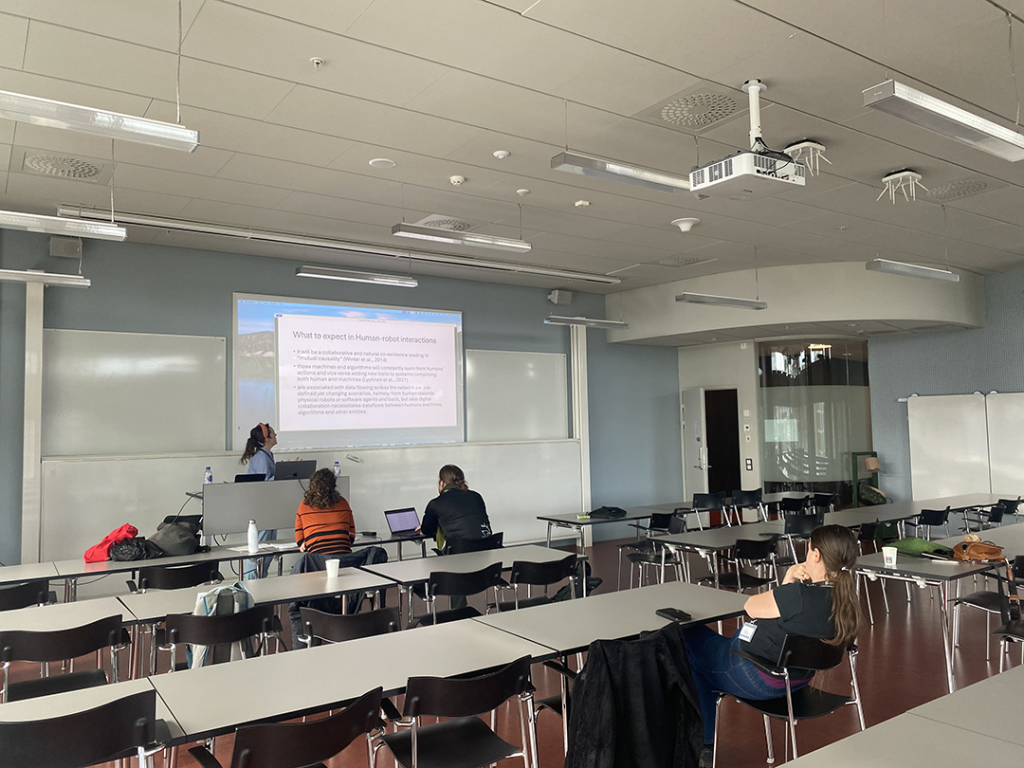News Story
Shifting Power Group Successfully Hosts The Second Workshop on Ecology of AI at HHAI 2024 Conference
Monday 15 Jul 2024
KMi’s research group Shifting Power participated in the International Conference Series on Hybrid Human-Artificial Intelligence (HHAI) 2024, held from June 10th to 14th in Malmö, Sweden with a workshop event.
This 2nd Ecology of AI (EcAI) 2024 workshop aimed to extend the dialogue from last year’s successful event, further exploring the extensive impacts of AI technologies. Again this year, , the workshop sought to illuminate the broader ecosystems and global structures involved in AI implementation and its influence on world systems, which was motivated by the acknowledgment that “ethical” or “responsible” AI and “AI for Social Good” are often framed through global powerhouse lenses.
Led by Dr. Retno Larasati, together with Dr. Tracie Farrell and Dr. Venetia Brown from the Shifting Power group and supported by Dr. Soraya Kouadri Mostefaoui and Dr. Syed Mustafa Ali from the School of Computing and Communication, the team organised this workshop with the aim to focus on reflection and critical analysis of AI’s impacts and implications. The workshop aimed to facilitate discussions on emerging questions about AI’s societal and environmental impacts, considering current socio-political and economic realities.

The workshop featured keynote presentations from distinguished experts in their fields. Dr. Theodora Dryer delivered an engaging talk titled “Water is Not Data and Water Rights are Not an Algorithm,” examining the complexities of water justice in the context of AI. Her talk confronted water innovation and water law, and highlighted the historical legacies of colonial and apartheid water control, emphasising the dual processes of abstraction and extraction facilitated by AI innovations in water management.
Dr. Dan McQuillan followed with his talk on “Resisting AI,” providing a critical perspective on the necessity of resistance against certain AI applications with their societal and ecological consequences. His talk delved into the link between AI technological advancement to the contemporary political and social currents such as global austerity and the rise of the far right.
Still on the same ecological impact thread, the next presentation was given by Dr. Joanna Boehnert and Alistair Alexander on “The Ecological AI in Fictions and Futures.” Their insights into the narrative and ecological aspects of AI added a valuable dimension to the workshop.
The workshop saw the participation of 42 people in total, both online and on-site, underscoring the significant interest and engagement in these critical topics. The workshop’s format allowed for a group discussion, in which all participants engaged in the reflection exercise on what questions should AI researchers and developers be asking themselves if they want to consider the larger global structures that impact and will be impacted by their work.
The EcAI 2024 workshop’s success underscores the importance of initiatives that provide a platform for researchers to broaden their perspectives on AI. By facilitating discussions that challenge prevailing narratives and highlight not only the good but also the bad of AI technologies, the Shifting Power group continues to contribute significantly to the ongoing discourse on AI’s role in society.
For more information about the workshop and to access recordings, please visit the Shifting Power website.
Latest News
KMi at the Palace of Westminster: Exploring Blockchain for Society and Economy
OUAnalyse at the Digital Ethics Summit 2025: Advancing Responsible AI in Education

